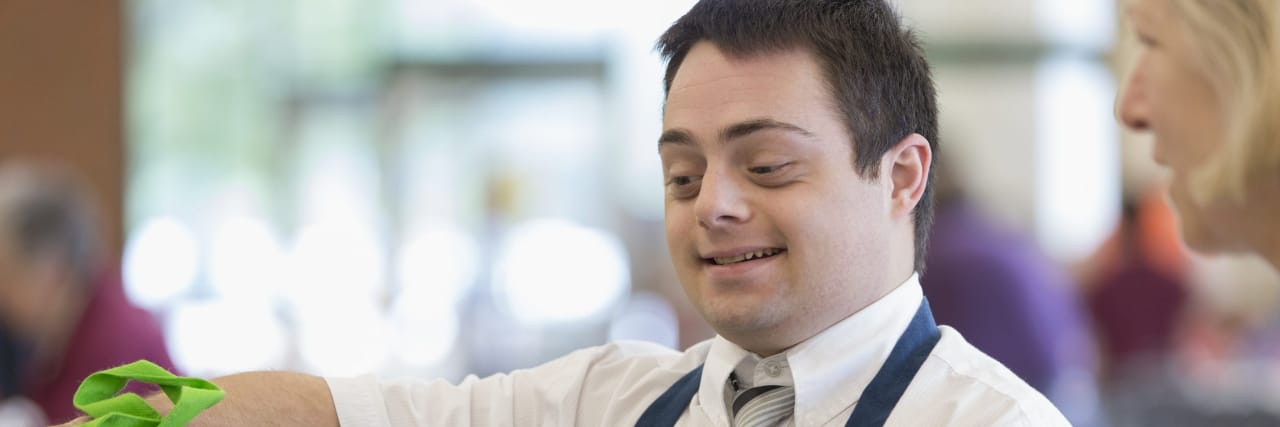Recently, I was shopping in one of my local grocery stores when I heard an announcement that caught my attention. The store was telling how they won an award for hiring people with disabilities. As a person with a learning disability, this caught my interest because I’m always interested in hearing how employers accommodate those with disabilities. However, the message was doing little to tell how they accommodate individuals who have health conditions. To make matters worse, the message ended with saying how the company was committed to helping people who were “differently abled.” I couldn’t believe what I was hearing. Surely a company committed to helping people with disabilities wouldn’t be so ableist.
The term “differently abled” isn’t an accurate term for people with disabilities. Everyone has things that they are good at and things that they struggle with — and people with disabilities are no exception. The only difference is that a person with a disability may need to have accommodations to perform their job. Saying “differently abled” further divides people with and without disabilities.
Using these terms also puts people with disabilities in a box based on what they can do and what they can’t. Many people have prejudice about the types of jobs that someone with disabilities can have. I have been told that because of my math disability, I would have limited job and educational opportunities. Professionals have told me that some jobs and educational programs would be beyond my capabilities. I have exceeded many of their expectations, though. Other people have wanted me to do jobs that were beyond what I was capable of — which caused me to feel frustrated.
Euphemisms for disabilities can also make people who have them feel ashamed — or feel like they have to hide their disabilities. Saying that a person has a disability is not a bad thing. “Disability” isn’t a dirty word or something to be pitied. Many times, when I tell people that I have a disability, people tell me that they are sorry or tell me how brave I am, but having a disability isn’t anything to feel sorry for. I also don’t view myself as “brave” — but instead as a person who is living life with a disability. I may have to do a few things differently, but I’m much more like you than you may think.
Pity also doesn’t do much to help me. What does work for me is having understanding employers, family, and friends — as well as an understanding community. When I have people in my life who are accepting of my disability, I feel safe to advocate for what I need.
I’m not against employment programs that provide job opportunities for workers with disabilities. Many people with health conditions have limited employment choices. Employers may also not know how to best accommodate workers with them. Also, not every employer is understanding — even those who claim to help those with disabilities. Unemployment rates are higher for people with disabilities than they are for able-bodied and neurotypical people, and having both accommodations and opportunities can be essential for a worker with a disability to be able to perform their job.
Many employers may mean well but end up hurting people with disabilities by silencing their voices. It is important for people with disabilities to be able to state their needs and say that they have disabilities. I have to wonder how many people with disabilities the grocery store consulted about how they wished to be referred to and the needs that they have.
It is my hope that one day, people with disabilities will be seen for who they are — not as “differently abled” or “special” but rather as individuals. It’s important to see people with disabilities as people with strengths and weaknesses who may just have to do a few things differently. Most importantly, it matters when we see people with disabilities as human beings — just like everyone else.
Getty image by

